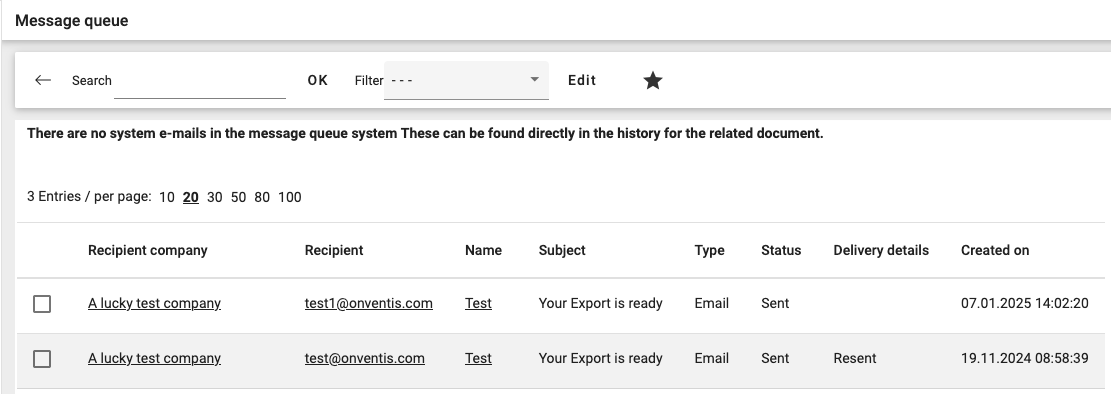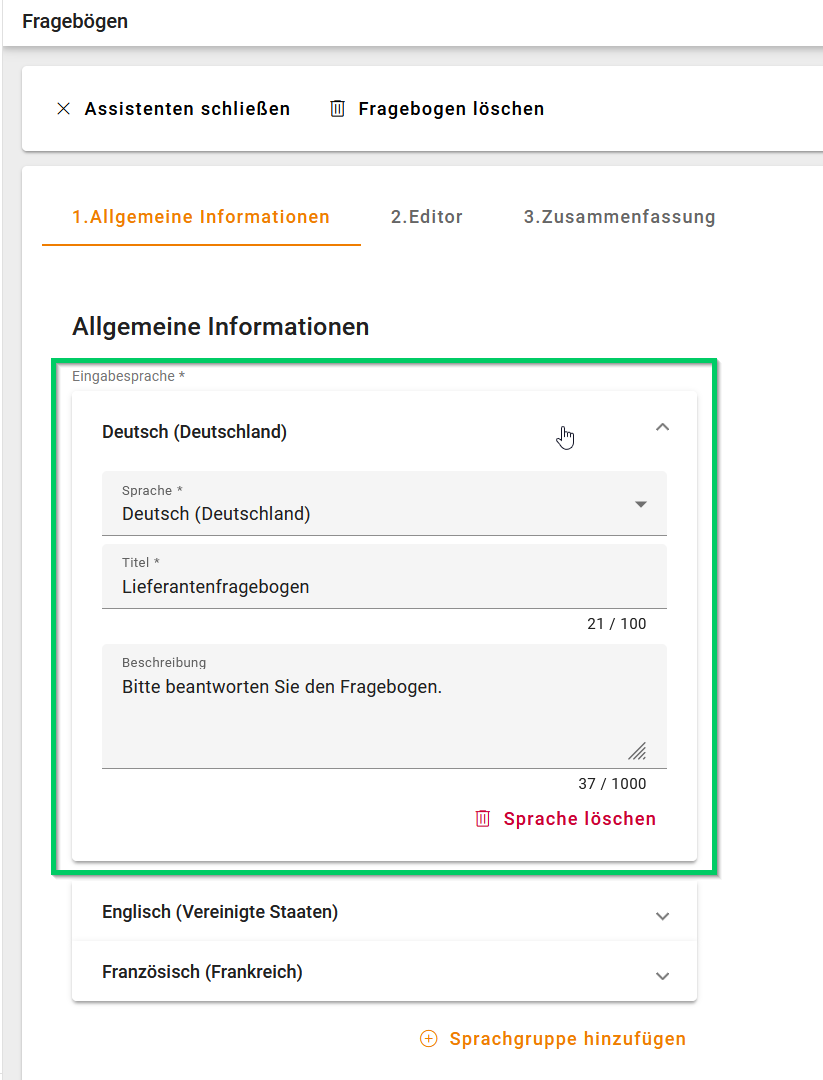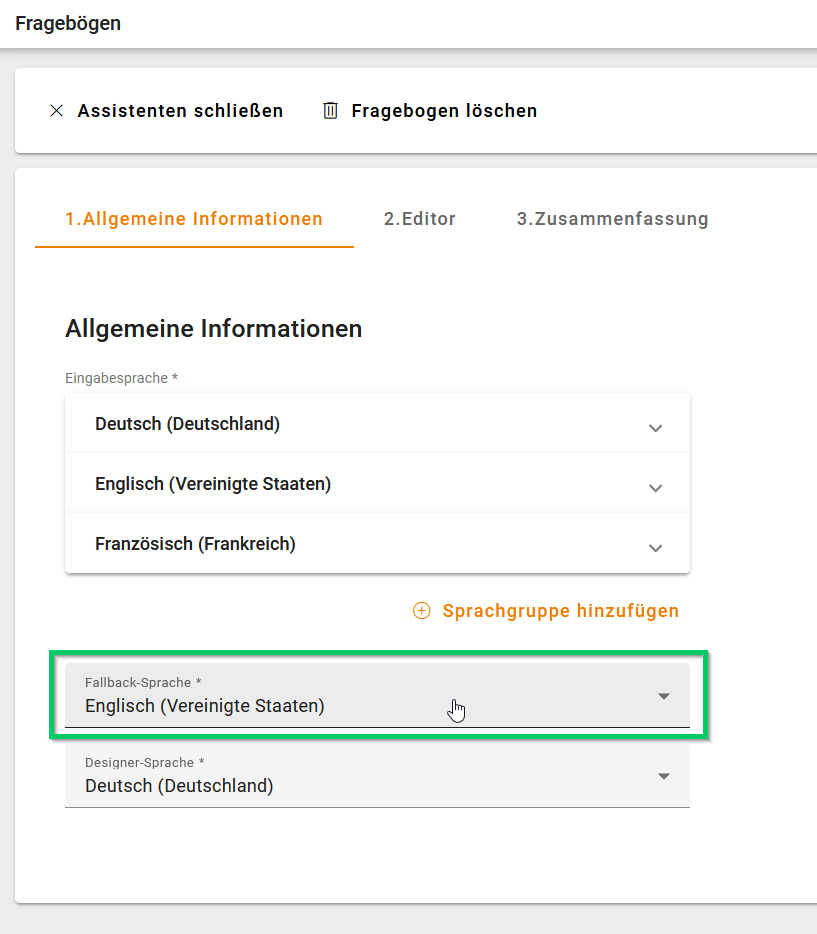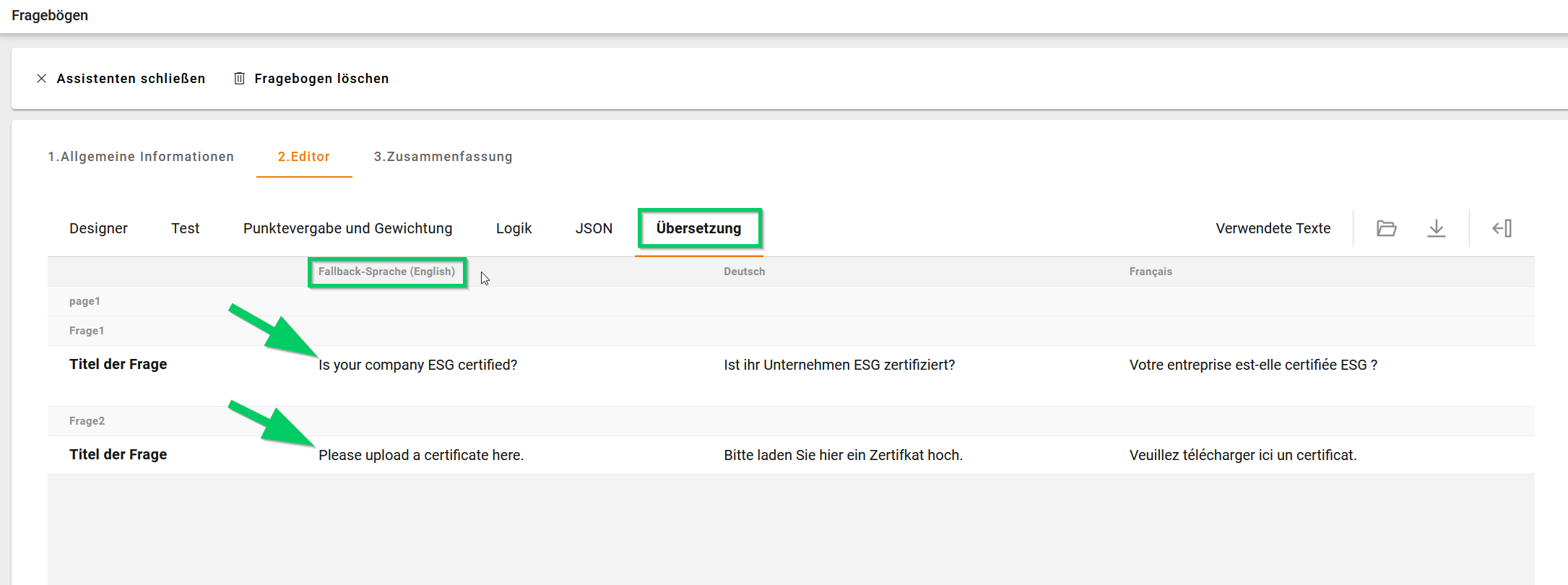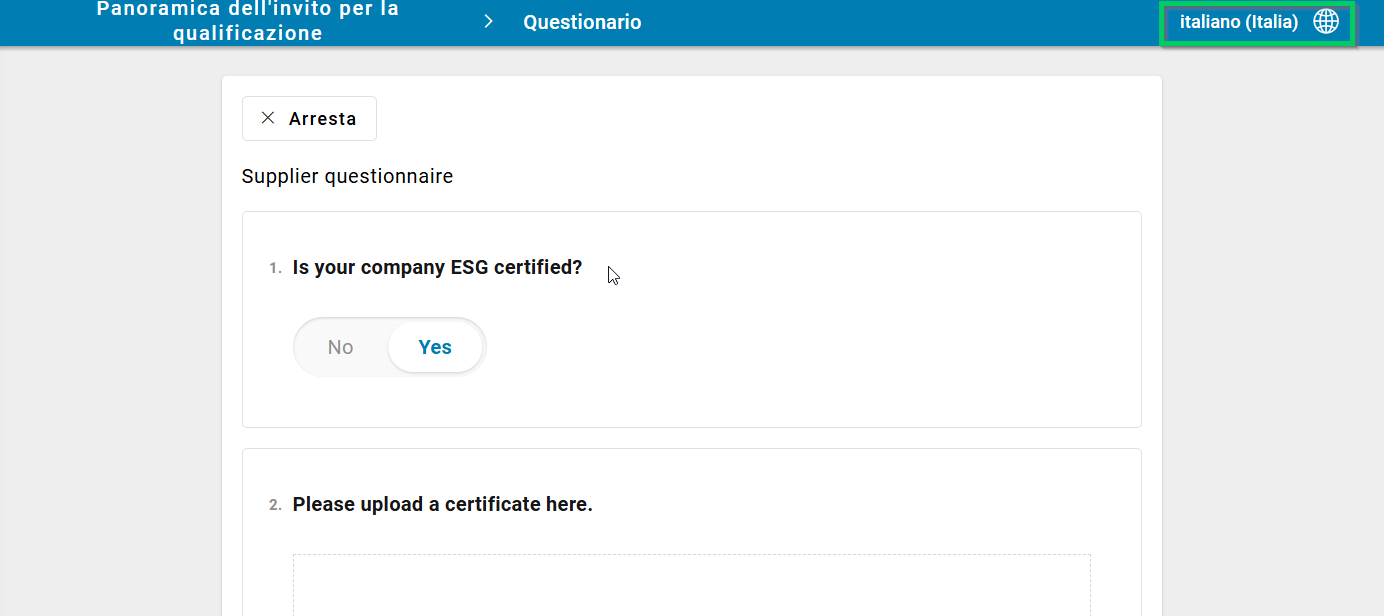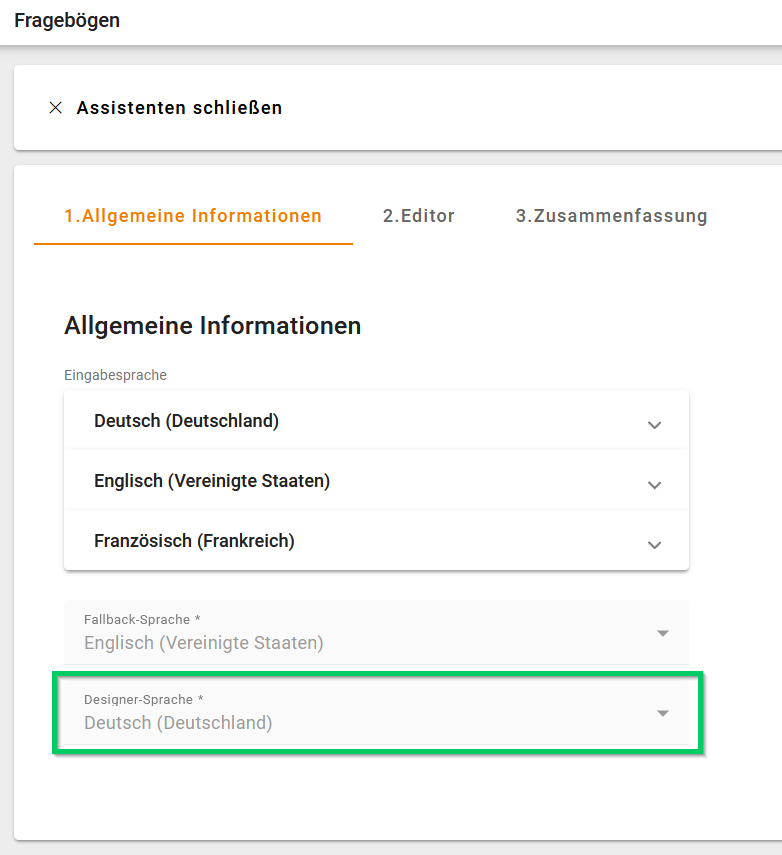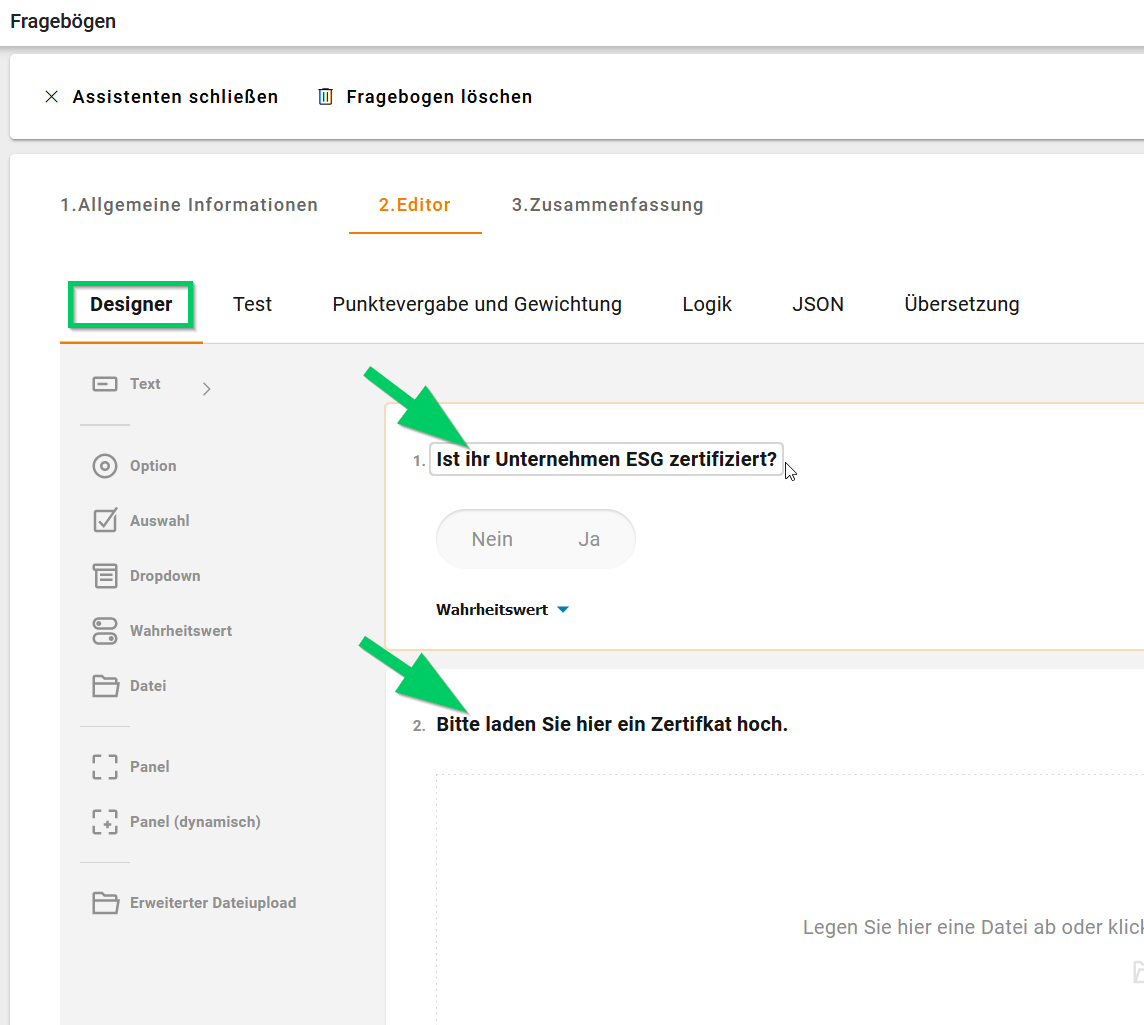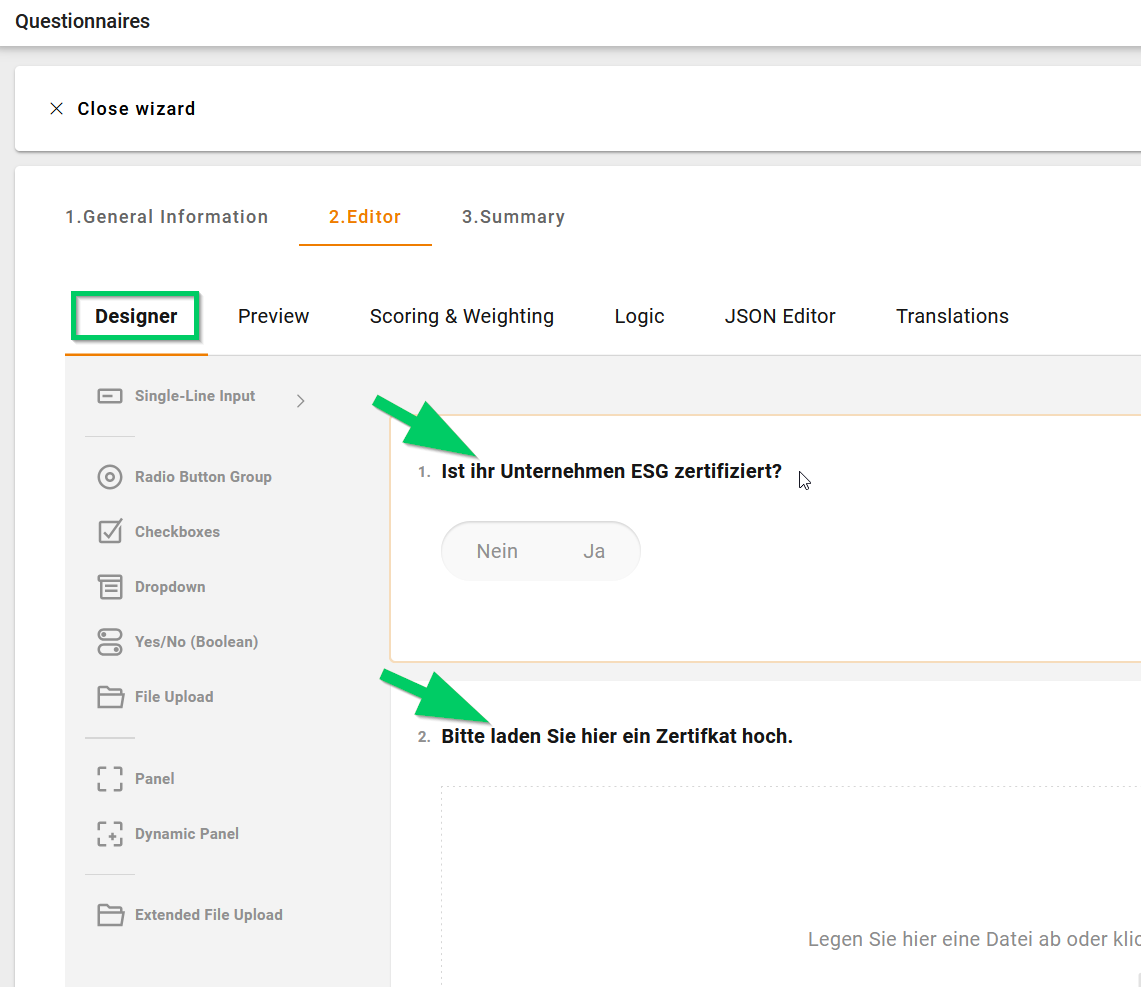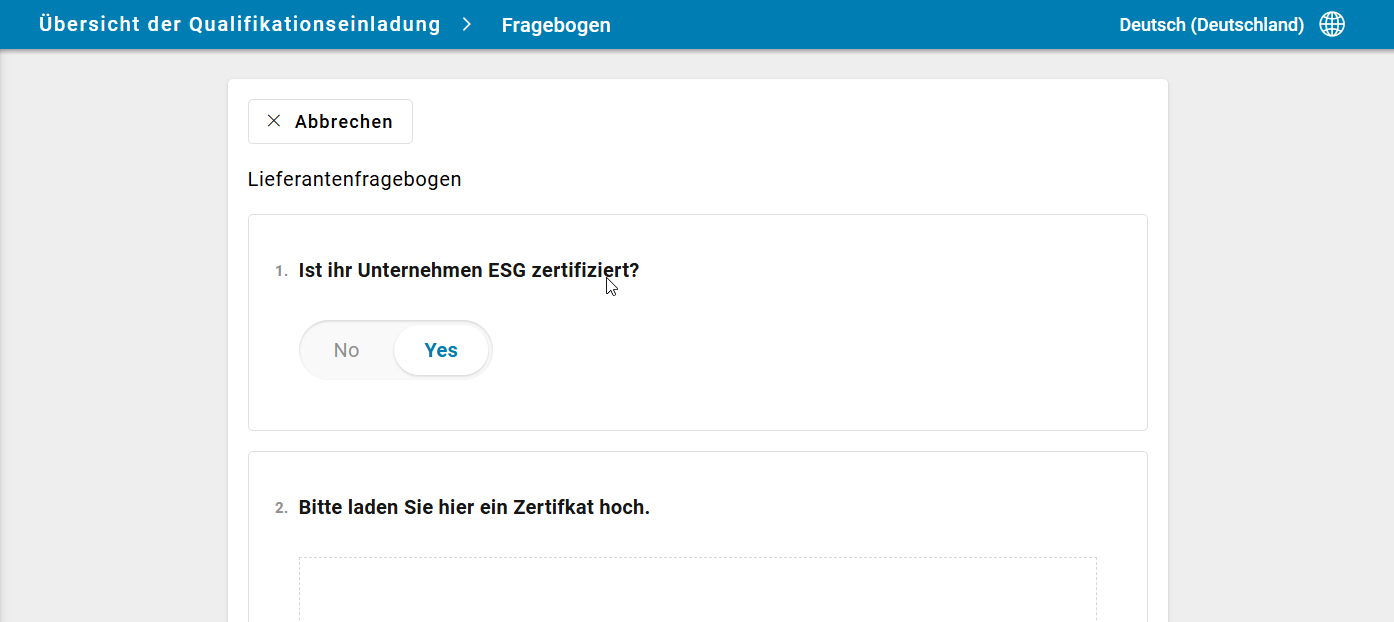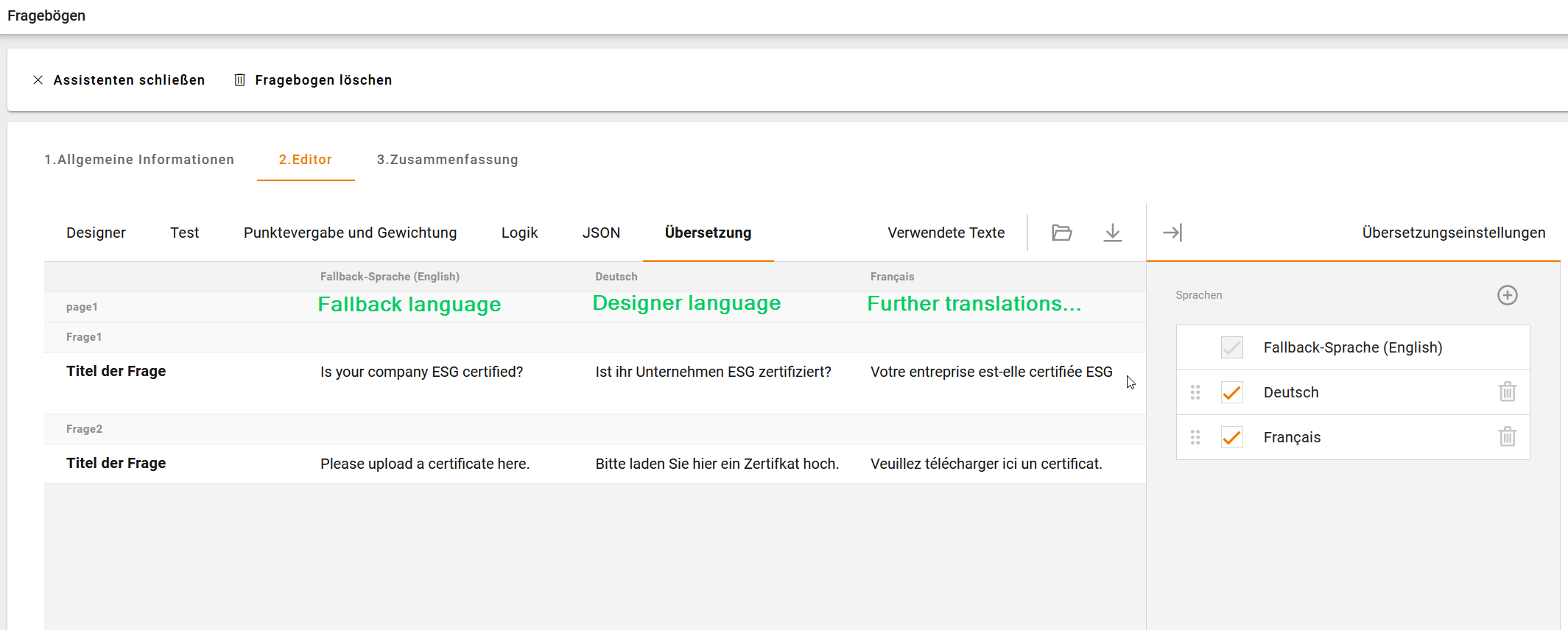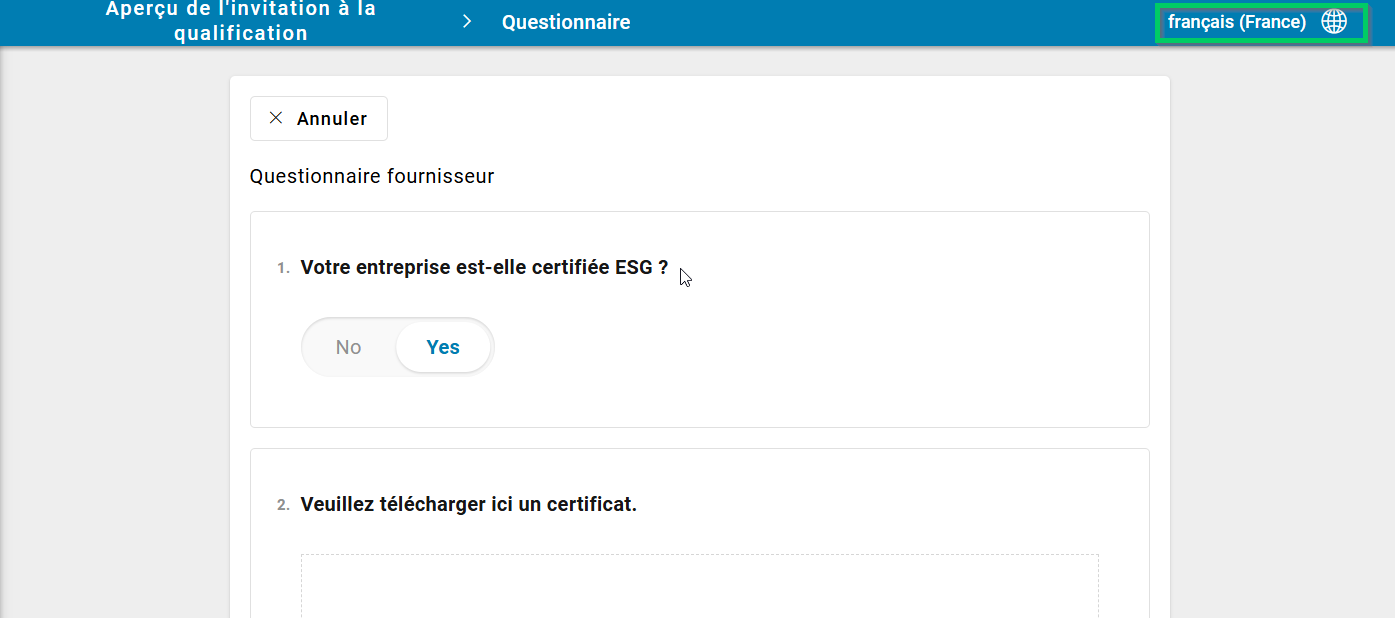Onventis 2025.1
The new Onventis 2025.1 release contains various enhancements, improvements, and bug fixes. Check out the complete list below!
Beta release date: Tuesday, January 07, 2025
Release date: Tuesday, January 21, 2025
Procure-to-pay
Discontinuation of the Old Shopping Cart Button/Link
The old shopping cart button/link has been removed from the new shopping cart page to enhance user experience by focusing on updated functionality and eliminating redundancy. All references to the old shopping cart are either disabled or redirected to the new Shop cart interface, ensuring consistency and clarity for users.

Count Indicator for "Additional Fields" in Article Edit Page
A dynamic count now displays next to "Additional Fields" in Article Edit Page, showing the number of entries (e.g., "Additional Fields (3)"). The count updates in real time as data is added or removed, improving visibility and efficiency when managing article data.

Improved Supplier Selection in Extended Search
To simplify supplier selection, additional information is now displayed in the Extended Search window in the shopping cart. Users can easily distinguish between suppliers with similar names by referencing key details.
New Columns Added:
VAT Number
Registered Number
Enhanced Usability:
These fields are visible for all suppliers in the system.
Users can search and view the VAT and registered numbers directly in the search results.
Long numbers are wrapped to ensure readability.
This enhancement streamlines supplier management, ensuring better data visibility and an improved user experience.

Enhanced Control Over Catalog Item Fields
Organizations can now enforce new user rights that restrict editing of purchasing group and material group fields for catalog items in transactional processes, ensuring consistency and compliance.
Key Features:
Configurable Permissions:
Two new user rights introduced via checkboxes:
"User may not change catalog item material groups"
"User may not change catalog item purchasing groups"
Behavior Overview:
Catalog Items in Transactions:
Restrictions apply to catalog items within transactional contexts such as shopping carts, demand positions, and PO line items.
For POs:
If catalog items are included, the purchasing group and material group fields at the line item level will be locked if user rights disable editing.
Header-level fields are locked when catalog items are present, ensuring uniformity across all items in the PO.
Catalog Item Master Data:
These restrictions do not apply to the maintenance of purchasing group or material group values in catalog item master data.
Free-text Items:
Fields remain editable to retain flexibility in non-catalog scenarios.
This enhancement improves control over catalog item data in transactional processes, ensures the integrity of mapped values, reduces errors, enhances operational efficiency, and leaves catalog master data unaffected.

Enhanced openTrans Import with Header-Level Field Support
The openTrans import for order confirmations for buyer organizations has been enhanced to support additional header-level fields, including delivery terms, Incoterms, delivery location, additional costs, tax rates, and price. This update improves data handling and operational efficiency by aligning the import functionality with the export process.
Mandatory Article References in Demand Position
Mandatory reference articles are now automatically added to demand positions when source articles are transferred from the shopping cart. This update simplifies workflows and ensures accurate handling of mandatory accessories.
Mandatory reference articles are automatically added to requisitions and cannot be deleted or altered unless the source article is removed.
Users receive a notification when mandatory articles are added or removed.
Clear labels:
Mandatory articles: "Mandatory for {Source article name}"
Source articles: "Source Article"
Note: This feature applies only to demand positions created from shopping carts. This update improves efficiency and ensures seamless management of mandatory articles in demand positions.
Improved Customs Tariff Determination with Organization Unit-Specific Supplier Addresses
The customs tariff determination process has been enhanced to improve accuracy and reduce unnecessary requests. The system will now prioritize organization Unit-specific supplier addresses over the default supplier address, ensuring tariffs are only calculated when required.
Address Priority: The system checks for an organization unit-specific supplier address and uses it for customs tariff determination. The default supplier address is only used if no specific address exists.
Cross-Border Logic: Customs tariff numbers are requested only for transactions involving different countries between the organization and supplier. Domestic transactions (where both parties are in the same country) bypass these checks.
Example Use Case:
An organization unit in Austria places an order with a supplier that has an organization unit-specific address in Austria but a default address in Germany. The system uses the Austrian address for customs tariff checks, recognizing it as a domestic transaction, and no tariff number is requested.
SAP Related Key-Update
Visibility of Delivery Addresses from SAP Imports
Delivery addresses imported from SAP are now always displayed in demand positions. Previously, these addresses were only visible after transferring the demand position into an order.Submissions Number Field Now Available in All Orders
The "Submissions Number" field can now be displayed in all types of orders. Its visibility is controlled via the relevant organization setting. Previously, this field could only be used in framework agreements.Dynamic Setting of GR Indicator in SAP Order Transfers
When transferring orders to SAP, the Goods Receipt (GR) indicator can now be dynamically set based on the specific order processing workflow. Previously, the GR indicator could only be set or unset by default.Editable Configuration Table for Invoice Plan Types
The configuration table in the organization settings for managing invoice plan types in framework agreements has been updated. Individual entries and settings are now editable. Previously, entries could only be created or deleted, and existing invoice plan types or their details could not be modified.
Supplier Management
Supplier Qualification
Tooltip explaining the maximum achievable score
A new note has been added to the questionnaire designer. This note is visible in the section “Scoring and weighting” and in step 3 “Summary”. It says: “The maximum achievable score defines the highest possible achievable score per questionnaire. If you make the visibility of questions dependent on other questions, it is possible that the maximum achievable score cannot be reached.”
Means, although it is possible for the questionnaire designer to add scores to conditional questions and conditional panels, but the current Scoring & Weighting model does not support the calculation of different maximum achievable scores. E.g. if the responder can follow different answer branches and will therefore be excluded to give answers to not visible, but scored, questions. There is still only one maximum achievable score per questionnaire.
We see that multi-branching capabilities as a big improvement of the Scoring & Weighting model and currently designing a new calculation logic. This shall also include UX improvements in the logic settings of a questionnaire.
The ‘Maximum achievable score’ in the product documentation: Scoring Model

Disclaimer explaining the maximum achievable score
Questionnaire Designer: Introducing 'Designer language'
In the last release we inserted a change in the Questionnaire creation process. A new mandatory field is added to the tab 1. General information, called ‘Designer language’.
The ‘Designer language’ defines, in which language the Survey content will be created (Tab 2. Editor > Tab “Designer”). The Designer language field is visible, if more than one input language is added.
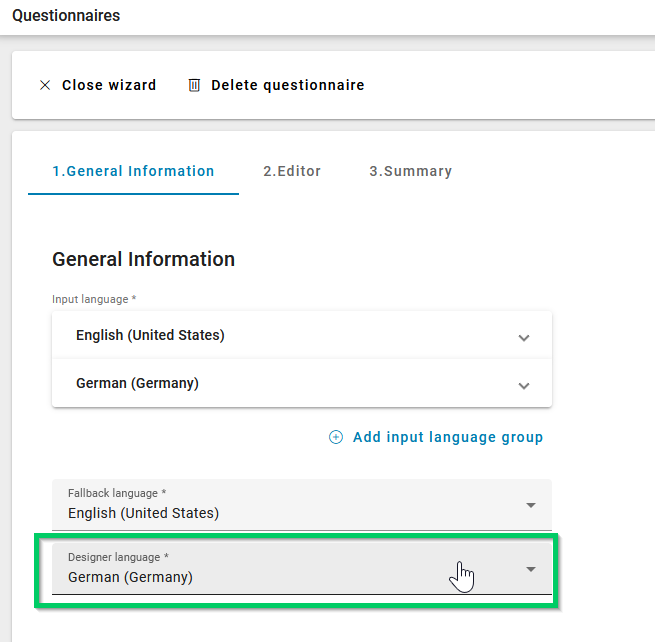
Designer language needs to be set per questionnaire
In the following table you will find an overview of the language settings and the handling of translations in the Questionnaire Designer:
Questionnaire Designer (Bug fix): User can now use the special character “.” in a question name
When a user entered a dot into the field for question name of a scorable question and enabled scoring, the preview of the questionnaire was shown in a broken state. With the fix, the user can use dots without braking the questionnaire.
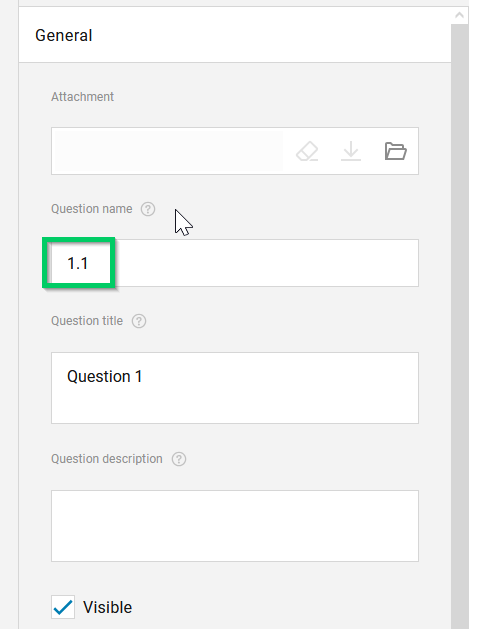
Set a dot inside a question name
Supplier Portal registration
Checkbox for sending a request to join a Portal account is activated by default
In case a duplicated VAT ID is detected in the Supplier Portal registration process, a hint is shown to the user. Via that hint, the user can send a message to the admins of the organization already registered with that VAT ID. The message can include a reuqest to join the existing supplier organization as a new user. The checkbox for that request is now activated by default.
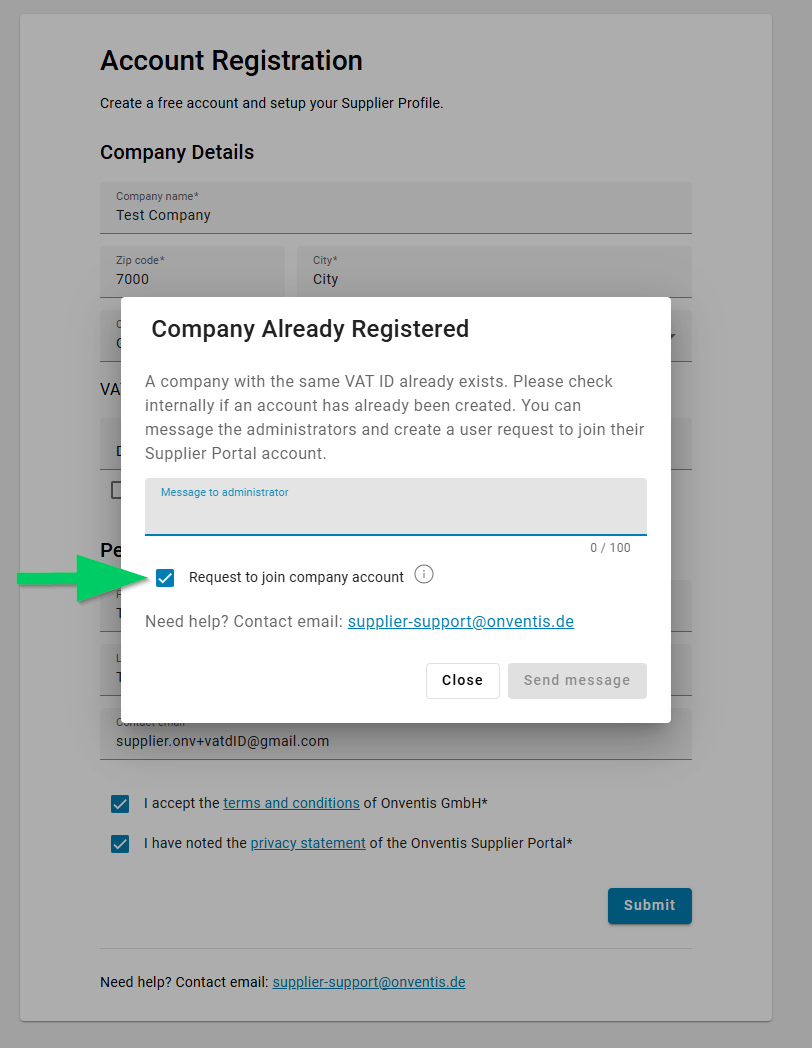
Checkbox is checked by default
Error message for disposal e-mail addresses
Disposable e-mail addresses can no longer be used for registration in the supplier portal. The user will receive an error message if they use such an e-mail address.
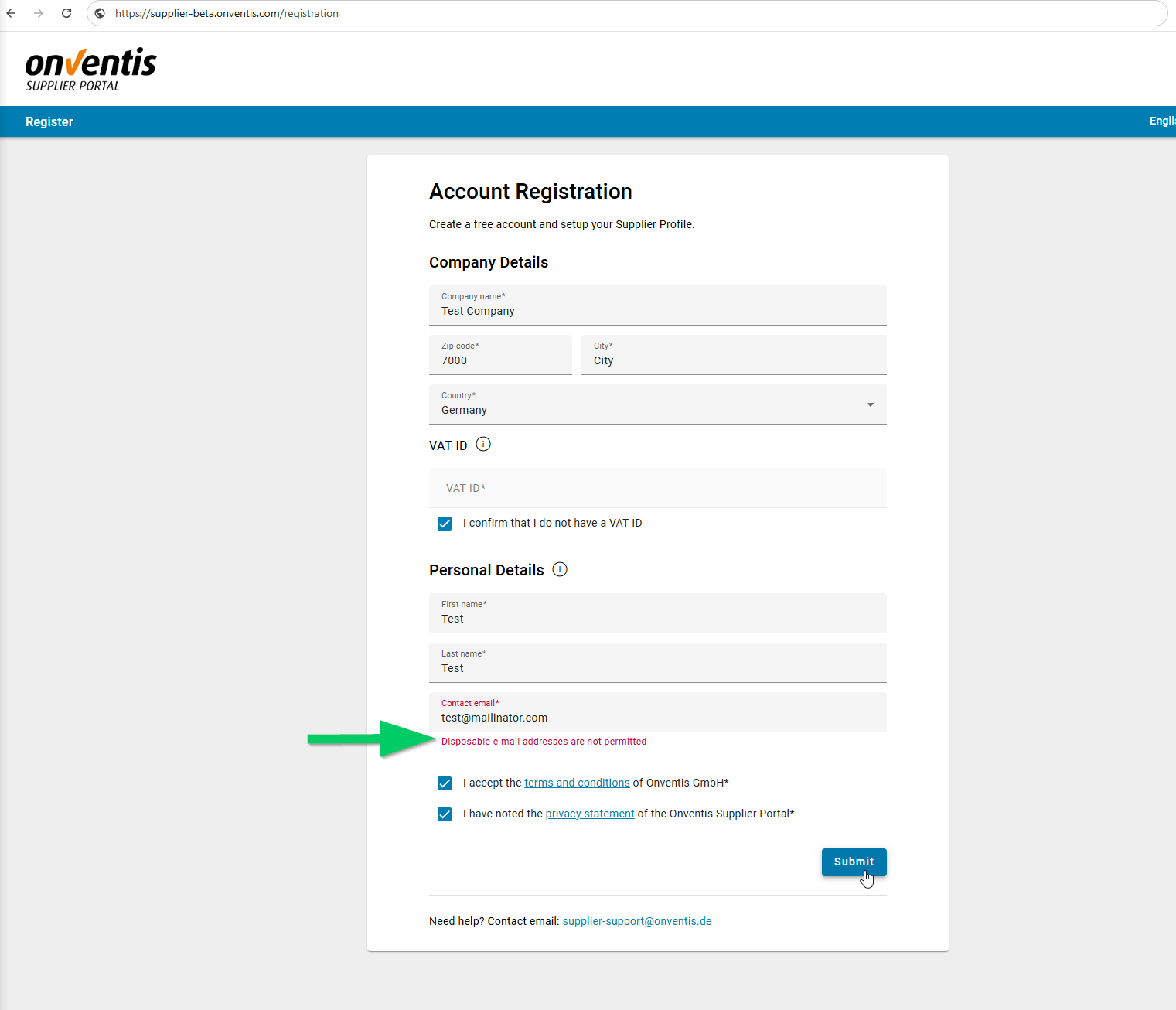
Error message is shown when using disposable e-mail addresses
Onventis Platform
BcJob Log improvements
We have significantly enhanced the BcJob log page to provide a more intuitive user experience. The Execution section now features two new powerful filtering capabilities:
A timespan filter
An execution-state filter
These additions make it easier to locate specific executions.
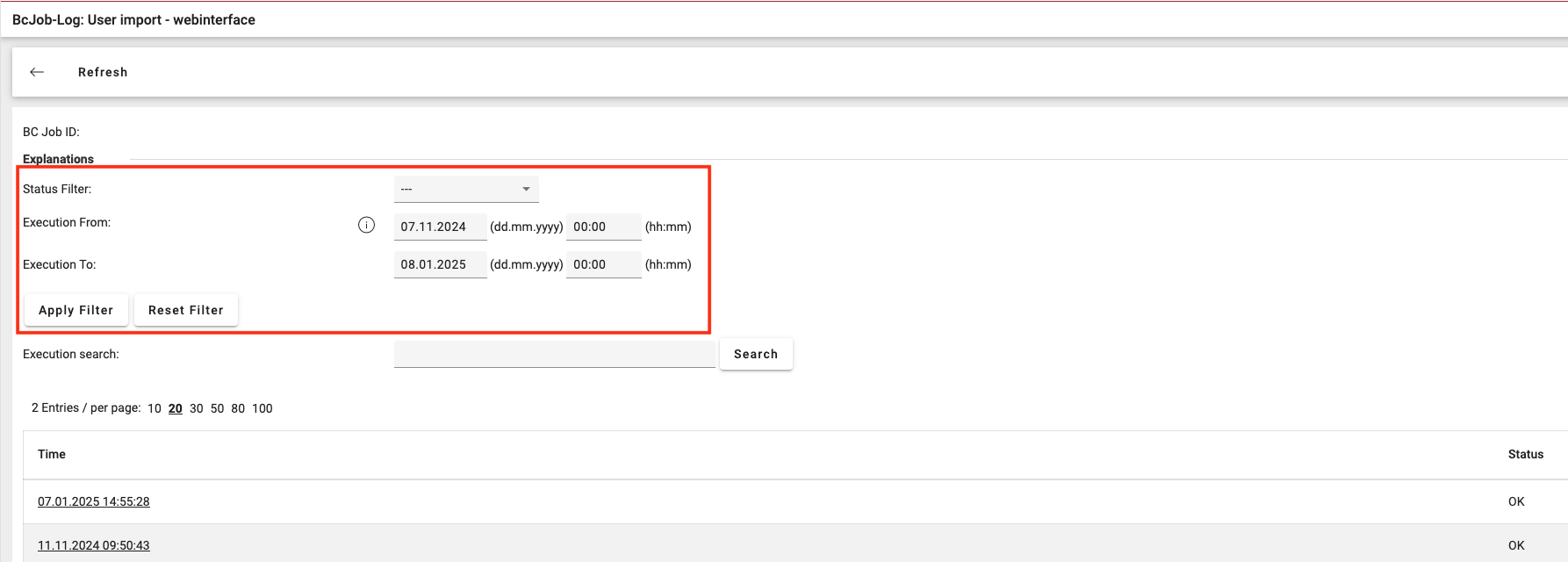
Furthermore, we've improved the Log data-grid by incorporating timestamp information for each log entry, enabling better temporal tracking and analysis.
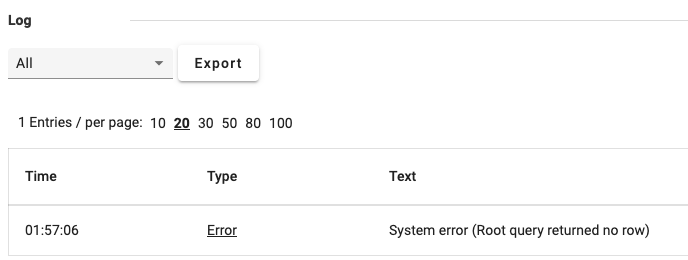
E-Mail Queue resent
We have introduced a new "Delivery detail" option labeled "Resent" to the E-Mail Queue system. This feature automatically marks any list item that has been resent, enabling you to:
Track resent emails more effectively
Create filters to include or exclude resent messages from your search results
This enhancement provides greater control and visibility over your email management workflow.
